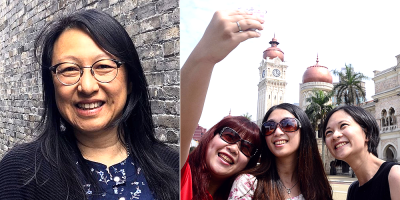Sin Chew Daily
Living with the virus and the expectation that the coronavirus will evolve into an endemic phase has been the mainstay of the anti-virus roadmap of Malaysia and many other countries in this world.
However, there are signs which show that the virus is constantly mutating and has over and again breached the anti-virus defense lines of nations.
As such, this mentality shift will put the adaptability of our government as well as the general public to major test.
Prime Minister Ismail Sabri Yaakob announced that KL, Selangor and Putrajaya would proceed to phase two of the National Recovery Plan from today, while the COVID-19 task force has combined the three into one single anti-virus zone in which people living in the zone can travel freely across state and district borders within the zone, with all road blocks removed.
Ismail said the news had been very much anticipated by Klang Valley residents. Indeed, more than 80% of the adult population of these three areas have been vaccinated while there is an apparent downtrend in the number of new cases in recent weeks.
As the economic powerhouse of the country, these three areas should be allowed to proceed to the second phase of the NRP so that the stagnant economy can be revitalized while the day-to-day living of local residents can be conditionally restored. Prolonged lockdown will never be a long-term solution anyway.
The government has earlier projected that the country could achieve the herd immunity goal by end of October so that more restrictions could be lifted by then. However, Malaysians are also simultaneously reminded that even fully vaccinated individuals can still get infected and spread the virus to people around them.
Sure enough there are still people in the workplace that have yet to be fully vaccinated, and these people may get seriously ill if we spread the virus to them.
 With the economy now restarted, places like cinemas and performing venues will be allowed to operate again while more restaurants and eateries will offer the dine-in option for their customers. People who are working from home now are expected to return to their respective workplaces soon, while more businesses will resume their operations. Even schools are expected to reopen in stages from next month.
With the economy now restarted, places like cinemas and performing venues will be allowed to operate again while more restaurants and eateries will offer the dine-in option for their customers. People who are working from home now are expected to return to their respective workplaces soon, while more businesses will resume their operations. Even schools are expected to reopen in stages from next month.
This means there will be increased human traffic in public venues and workplaces, and higher chances of human-to-human contacts, and thus significantly higher risk of virus transmission.
In view of this, it is imperative that preventive measures are well in place before the lifting of restrictions,
Health Ministry statistics show that infection clusters related to workplaces constitute a major factor in rising positive COVID-19 cases in recent weeks, making up about 53.2% of all of the country’s infection clusters.
WHO and local studies show that closed spaces such as air-conditioned workplaces and cinemas will increase the transmission risk of the virus, which can suspend in the air for up to eight hours in the absence of adequate ventilation, and travel up to six metres in the air through aerosol particles.
This highlights the fact that it is utterly essential to ensure good ventilation, regular air-con maintenance, and keep optimal hygiene in such places.
The Human Resources Ministry has through the Department of Occupational Safety and Health (DOSH) drawn up Indoor Air Quality (IAQ) Guidelines to improve the ventilation and indoor air quality at workplaces, health facilities, households and other public areas in a bid to minimize the risk of virus transmission. The effectiveness of such measures will very much depend on the level of cooperation from the employers as well as members of the public.
The virus keeps mutating and the nature of the Delta variant has been altered. Once an individual is infected with the Delta variant, enormous amounts of virus will be produced inside the host body, making the virus highly transmissible. Even people who are fully vaccinated can be infected, and if they present no symptoms, they may spread the virus to other people, making contact tracing extremely challenging.
In Singapore, for example, the government’s anti-virus roadmap towards the new normal way of living has been repeatedly modified due to a rise in confirmed COVID-19 cases, and has adopted prompt actions to mitigate the spread of the virus, including urging the public to conduct home tests, observe quarantine and reduce social activities.
A Singapore scholar has opined that tackling the challenges of mutant variants has become a question of policy, rather than pur medical problem.
Government leaders need to have the wisdom and comprehensive thinking to determine how to balance between the economy and the public’s health. Where this is concerned, public cooperation is very crucial. Everyone of us is a frontliner and we are constantly undertaking out citizen’s obligation to help break the infection chain.
ADVERTISEMENT
ADVERTISEMENT








































